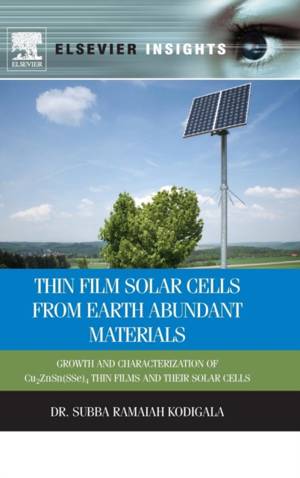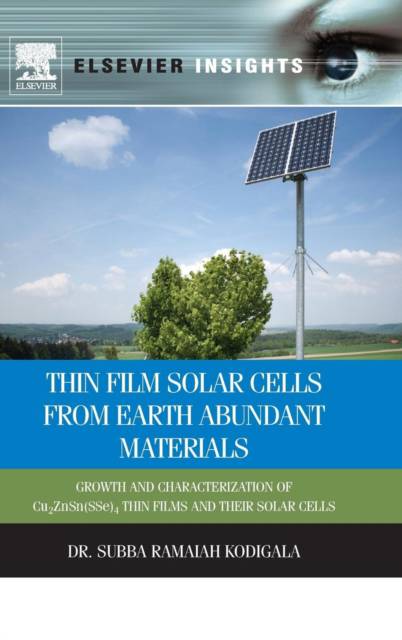
- Retrait gratuit dans votre magasin Club
- 7.000.000 titres dans notre catalogue
- Payer en toute sécurité
- Toujours un magasin près de chez vous
- Retrait gratuit dans votre magasin Club
- 7.000.000 titres dans notre catalogue
- Payer en toute sécurité
- Toujours un magasin près de chez vous
Thin Film Solar Cells from Earth Abundant Materials
Growth and Characterization of Cu2(znsn)(Sse)4 Thin Films and Their Solar Cells
Subba Ramaiah KodigalaDescription
The fundamental concept of the book is to explain how to make thin film solar cells from the abundant solar energy materials by low cost. The proper and optimized growth conditions are very essential while sandwiching thin films to make solar cell otherwise secondary phases play a role to undermine the working function of solar cells. The book illustrates growth and characterization of Cu2ZnSn(S1-xSex)4 thin film absorbers and their solar cells. The fabrication process of absorber layers by either vacuum or non-vacuum process is readily elaborated in the book, which helps for further development of cells. The characterization analyses such as XPS, XRD, SEM, AFM etc., lead to tailor the physical properties of the absorber layers to fit well for the solar cells. The role of secondary phases such as ZnS, Cu2-xS, SnS etc., which are determined by XPS, XRD or Raman, in the absorber layers is promptly discussed. The optical spectroscopy analysis, which finds band gap, optical constants of the films, is mentioned in the book. The electrical properties of the absorbers deal the influence of substrates, growth temperature, impurities, secondary phases etc. The low temperature I-V and C-V measurements of Cu2ZnSn(S1-xSex)4 thin film solar cells are clearly described. The solar cell parameters such as efficiency, fill factor, series resistance, parallel resistance provide handful information to understand the mechanism of physics of thin film solar cells in the book. The band structure, which supports to adjust interface states at the p-n junction of the solar cells is given. On the other hand the role of window layers with the solar cells is discussed. The simulation of theoretical efficiency of Cu2ZnSn(S1-xSex)4 thin film solar cells explains how much efficiency can be experimentally extracted from the cells.
Spécifications
Parties prenantes
- Auteur(s) :
- Editeur:
Contenu
- Nombre de pages :
- 190
- Langue:
- Anglais
- Collection :
Caractéristiques
- EAN:
- 9780123944290
- Date de parution :
- 19-11-13
- Format:
- Livre relié
- Format numérique:
- Genaaid
- Dimensions :
- 152 mm x 229 mm
- Poids :
- 435 g







